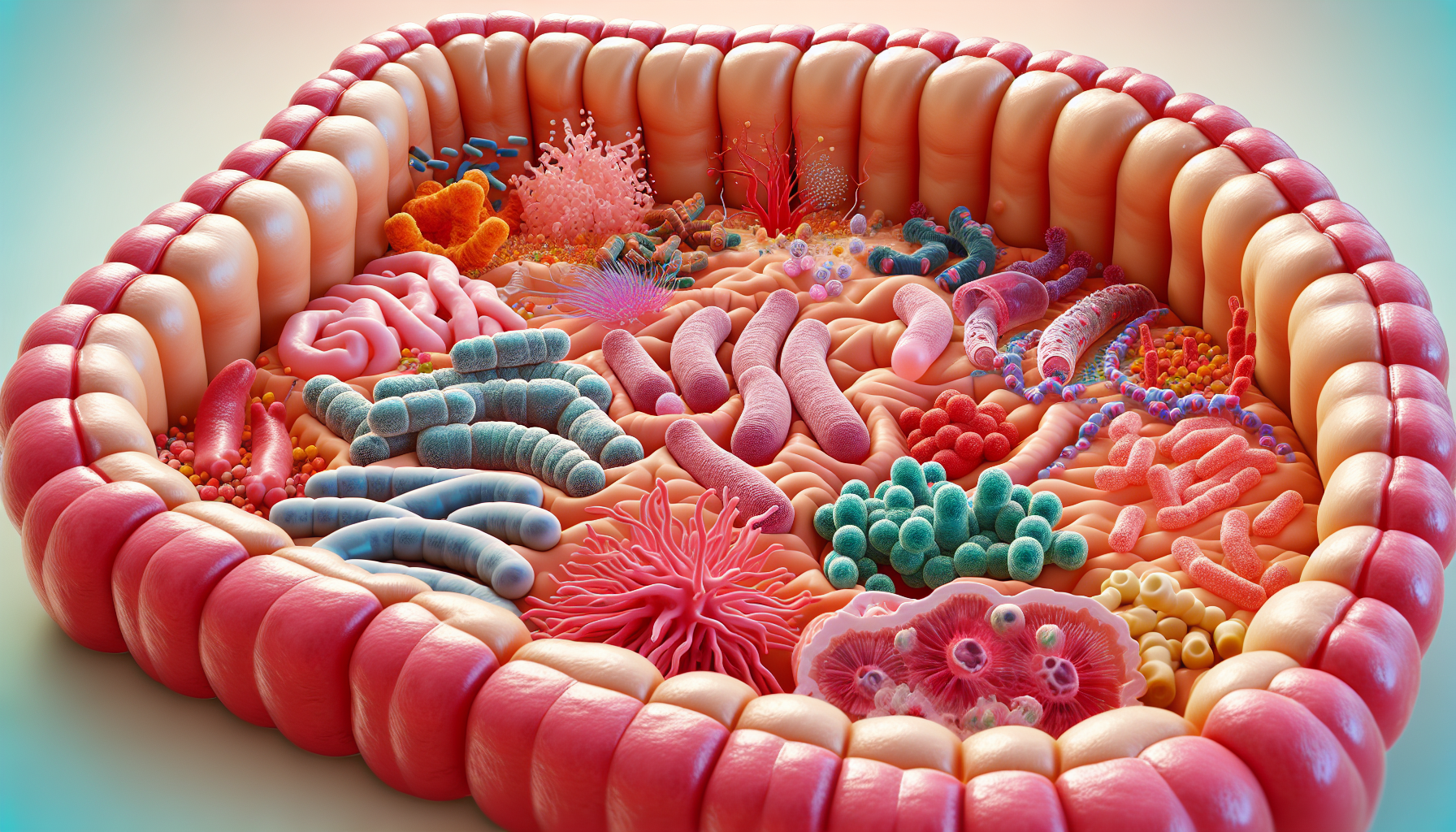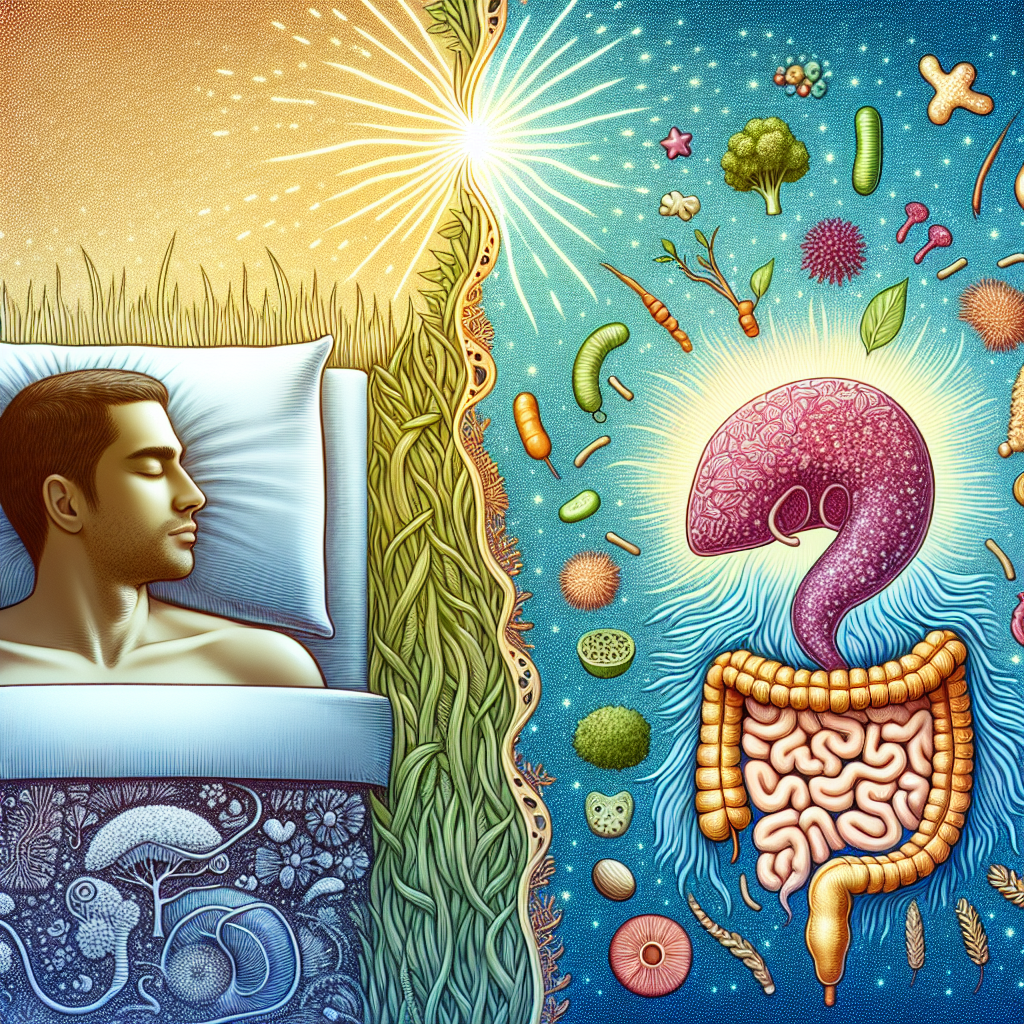Our body is a complex ecosystem, home to trillions of microorganisms, especially in the gut, where they play a pivotal role in our overall health. The gut microbiota, the vast community of microorganisms residing in our digestive tract, has garnered significant attention due to its profound influence on disease prevention and management. In this comprehensive guide, we will explore how these microscopic inhabitants affect our health and what we can do to harness their potential for a healthier life.
Understanding the Gut Microbiota
The human gut microbiota is an intricate and diverse collection of bacteria, viruses, fungi, and other microorganisms. Each individual hosts a unique microbiota composition, which is influenced by numerous factors including genetics, diet, environment, and lifestyle. These microbes engage in a symbiotic relationship with us, their host, contributing to various physiological processes.
The gut microbiota is involved in digestion, nutrient absorption, and metabolism. It also plays a crucial role in the development and function of the immune system, helping to protect against pathogens. Disruptions to the gut microbiota balance, known as dysbiosis, have been linked to a range of diseases, from gastrointestinal disorders to autoimmune diseases and even mental health conditions.
The Link Between Gut Microbiota and Disease Prevention
A well-balanced gut microbiota is essential for maintaining health and preventing disease. Beneficial bacteria produce substances like short-chain fatty acids (SCFAs), which have anti-inflammatory properties and may reduce the risk of chronic diseases such as obesity, type 2 diabetes, and cardiovascular diseases. For a deeper understanding of the cardiovascular system’s health, read about the cardiovascular health on Avix Health.
Probiotics, the live beneficial bacteria found in certain foods and supplements, can help maintain this balance and have been shown to prevent the onset of diseases. Prebiotics, which are dietary fibers that feed beneficial bacteria, also support a healthy microbiota.
Furthermore, a healthy gut microbiota is essential for effective immune response. The gut-associated lymphoid tissue (GALT) is the largest immune organ in the body and is directly influenced by the gut microbiota. By stimulating GALT, the microbiota helps in the development of immune tolerance and the prevention of autoimmune conditions.
Gut Microbiota in Disease Management
In cases where disease has already developed, the gut microbiota still plays a crucial role in disease management. For instance, certain strains of probiotics have been used to manage symptoms of irritable bowel syndrome (IBS) and inflammatory bowel disease (IBD). Here, you can explore strategies for managing IBS and promoting digestive health.
Moreover, fecal microbiota transplantation (FMT) is an emerging treatment for recurrent Clostridioides difficile infection, which can cause life-threatening diarrhea. FMT involves transferring stool from a healthy donor to the patient, aiming to restore a healthy microbiota balance.
The Role of Diet in Shaping the Gut Microbiota
Diet is one of the most significant factors shaping our gut microbiota. Diets rich in fruits, vegetables, and fibers are known to promote a diverse and stable microbiota. Conversely, diets high in processed foods and sugars can lead to dysbiosis. To understand the importance of fiber in gut health, consider reading about the relationship between fiber and gut flora.
For those interested in specific dietary strategies, the Mediterranean diet is praised for its beneficial effects on the gut microbiota. Rich in plant-based foods, healthy fats, and fermented products, this diet supports a rich and varied microbiota.
External Resources Supporting Gut Microbiota Health
- A study published in the journal of
Gastroenterologyhighlights the role of the Mediterranean diet in promoting gut microbial diversity. - The
American Microbiome Instituteoffers comprehensive insights into various microbiota research, including the impact of diet on gut health. - The
International Society for Microbial Ecology(ISME) journal provides a platform for the latest research on the gut microbiota and its role in health and disease.
Enhancing Gut Microbiota Through Lifestyle Changes
Lifestyle factors such as sleep, exercise, and stress management also influence the gut microbiota. Adequate sleep has been shown to have a positive effect on gut diversity, while chronic stress can lead to dysbiosis. Regular exercise contributes to a richer and more diverse gut microbiota, potentially lowering disease risk.
Probiotic and Prebiotic Supplementation
While diet and lifestyle are the cornerstones of a healthy gut microbiota, supplementation with probiotics and prebiotics can also be beneficial, especially for those unable to obtain sufficient amounts from their diet. It’s crucial to choose high-quality supplements that contain live and active cultures. For those interested in natural supplementation for digestive health, this article may offer valuable insights.
Future Perspectives
Research on the gut microbiota is rapidly advancing, with new discoveries continually expanding our understanding of how these microorganisms influence our health. The development of personalized probiotics and the exploration of the gut-brain axis are just some of the exciting avenues of research that hold promise for future healthcare interventions.
Conclusion
The gut microbiota is integral to our health, influencing disease prevention and management. Through diet, lifestyle modifications, and targeted supplementation, we can nurture our gut microbiota to support our overall well-being. As research continues to evolve, the potential for harnessing the power of these microscopic allies in our fight against disease remains vast and inspiring.



